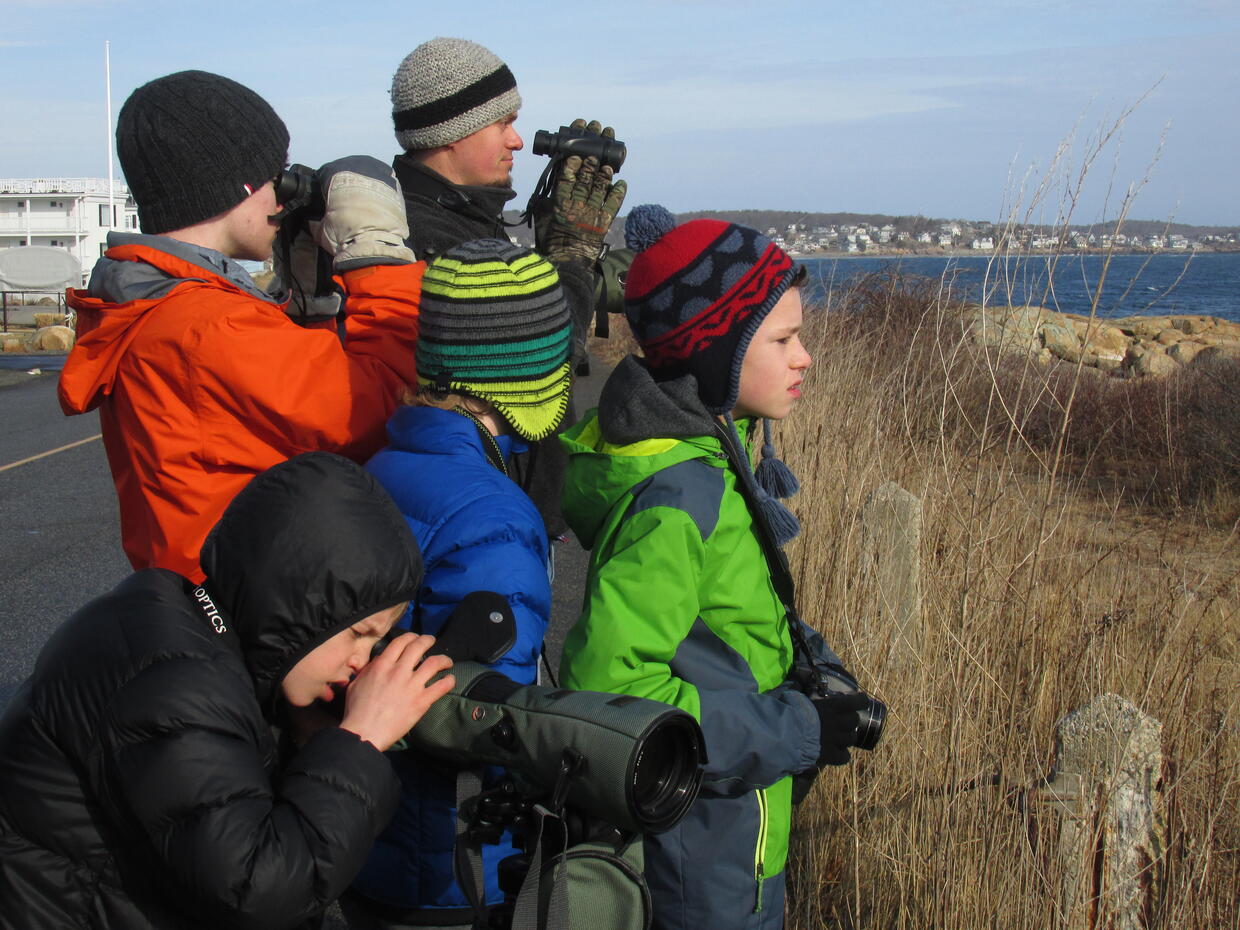Birdwatching tips
Check out these simple tips to get started birding:
Know what to bring. One of the best things about birding is how little equipment you need to get started! Just use your eyes and ears to listen and look for birds when you’re outdoors. As you become more advanced, you might consider investing in a pair of binoculars or a spotting scope. Click here for tips on finding a pair of binoculars you’ll love.
Know where to go. A great place to go birding is one of the many Wildlife Management Areas throughout Massachusetts. You can find one near you by visiting the lands viewer. For more ideas on where to go birding, visit Bird Observer’s New England Birding Guide.
Know when to go. Early morning or dusk are prime time for birding. And if you are looking to spot an owl, night time is best. Also, keep in mind that tides are important when birding on the coast.
- Know what’s in season. Massachusetts is home to some types of birds all year-long, while others only migrate through at certain times of year. For example, the black-capped chickadee (the state bird of Massachusetts) is seen year-round, while the colorful Baltimore oriole can be spotted during the warmer months. Consult a field guide to learn more about where birds are found at different times of year.
- Identify birds with an app. There are great free tools available for wildlife watchers. Download the Merlin Bird ID App for free, instant help identifying birds right from your smartphone or use eBird to track your bird sightings. Nature lovers will also enjoy using iNaturalist, another free app for people to learn about nature, share plant and wildlife observations, and crowdsource identifications.
- Consider joining a local birding group. By visiting BirdObserver.org, you can connect with a bird club in your region and find local resources and events. Many activities are free or low cost.
Birding ethics
Here are some simple guidelines for ethical and safe bird viewing:
- Keep a reasonable distance from wildlife. Remember, migrating birds may be stressed by hunger and long-distance travel. It’s critical for birders and photographers to resist the temptation to get too close.Use your binoculars and spotting scope rather than your feet, to get "closer" to your subject. If you get too close to an animal its behavior will change. It may stop feeding, look at you, vocalize, appear nervous or flee. If you note a change in behavior, back off slowly until you're out of the animal's "space".
- Be a responsible steward of the land, both public and private. Follow marked trails where indicated and leave an area cleaner than you found it. Get permission in advance before entering private land. Obey posted signage.
- Show consideration for other wildlife watchers and outdoor users. Speak quietly, move cautiously, and don't use tapes or calls that might interfere with the viewing experience. Leave pets at home. Some areas prohibit pets!
- Leave seemingly abandoned wildlife alone. Young mammals and birds may appear to be orphaned when actually there is an adult waiting nearby until it is safe to return. Never feed wildlife.
